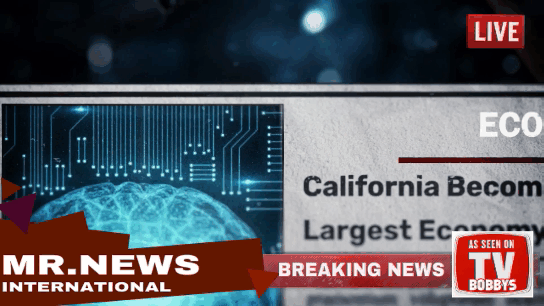-
play_arrow
NEWS NETWORK COMPANY RADIO NEWS NETWORK COMPANY RADIO
-
 play_arrow
play_arrow
MR. NEWS PODCAST NEWSCAST MR. NEWS
Politics
Politics shapes your society, influencing governance, laws, and everyday life. It’s crucial to understand political ideologies, as they guide beliefs and behaviors, impacting public policies. The government’s role is to provide essential services and maintain order, while civic engagement fosters community involvement and accountability. Today’s challenges like climate change and economic inequality demand urgent attention. With technology and social media transforming engagement, there’s much more to explore about how you can get involved and advocate for change.
Understanding Political Ideologies
Understanding political ideologies is crucial because they shape our beliefs, behaviors, and the policies that govern society. When you delve into these ideologies, you uncover the frameworks that influence your perspectives on issues like justice, equality, and freedom.
Each ideology, whether liberalism, conservatism, socialism, or libertarianism, presents a unique lens through which you interpret events and public discourse. Recognizing these ideologies helps you evaluate political messages critically.
It’s not just about aligning with a party; it’s about understanding the underlying principles that drive decisions and actions. By grasping the core tenets of different ideologies, you can better articulate your beliefs and engage in informed discussions.
Ultimately, your awareness of political ideologies empowers you to navigate the complex landscape of politics, ensuring that your views are grounded in thoughtful analysis rather than mere reaction. This understanding is essential for active participation in democracy.
The Role of Government in Society
While some may argue that government should play a minimal role in society, its influence is pivotal in shaping the structures that maintain social order and promote welfare.
You’ll find that government provides essential services like education, healthcare, and infrastructure, all of which contribute to a thriving community. By establishing laws and regulations, the government creates a framework that protects individual rights and promotes fairness.
Consider public safety; without law enforcement, societal chaos could ensue. Furthermore, government intervention in the economy can prevent monopolies and stimulate growth, ensuring a competitive marketplace.
In times of crisis, such as natural disasters or economic downturns, it’s the government that steps in to provide support and resources.
Ultimately, you can see that an active, engaged government is crucial not just for maintaining order, but for fostering the conditions needed for individuals to flourish and societies to prosper.
Current Key Issues in Politics
What drives the current political landscape more than the pressing issues that define our society today? You’ll find that topics like climate change, healthcare, and economic inequality dominate the conversation.
Climate change isn’t just an environmental concern; it demands immediate political action and policy reform. You realize that healthcare access influences voter sentiment, as disparities continue to affect millions.
Moreover, economic inequality is becoming a focal point. As wealth concentrates among the few, the struggle for fair wages and job security intensifies. These issues aren’t just political talking points—they shape your daily life and future.
Engaging with these challenges means participating in a democratic process that calls for accountability and transparency.
In a rapidly evolving world, understanding these key issues equips you to better advocate for the changes necessary to promote a more equitable society. Your voice matters; the time to act is now.
The Influence of Social Media
The pressing issues in politics are increasingly shaped by the pervasive influence of social media. You can see how platforms like Twitter and Facebook amplify political discussions, allowing ideas to spread rapidly and reach vast audiences. This immediacy can empower citizens, giving you access to diverse perspectives and fostering debate.
However, it also poses challenges. Misinformation can proliferate just as quickly, skewing public perception and polarizing communities.
Moreover, social media algorithms often prioritize sensational content, which can distort political narratives and overshadow nuanced discussions. It’s crucial for you to critically evaluate the sources of information you encounter online. Engaging with a variety of viewpoints can enhance your understanding of complex issues.
Ultimately, while social media can be a tool for political engagement, it requires your active participation and discernment to navigate its complexities effectively. In this digital age, your awareness and critical thinking skills are more important than ever.
Grassroots Movements and Activism
As social media connects people like never before, grassroots movements and activism have gained unprecedented momentum. You’ve probably seen how quickly a cause can go viral, mobilizing support across diverse demographics. This immediacy allows ordinary individuals to engage in political discourse, often challenging established power structures.
Grassroots movements thrive on community involvement, empowering you to influence change directly. These movements often focus on social justice, environmental issues, or political reforms, using platforms like Twitter and Facebook to raise awareness and organize events.
When you participate, you amplify your voice alongside countless others, showcasing the power of collective action. However, it’s essential to be discerning. Not all movements are created equal; some may lack transparency or clear objectives.
Engaging in the Democratic Process
Engaging in the democratic process is a vital extension of grassroots activism. When you participate, you amplify your voice and influence the decisions that affect your community. It’s not just about voting; it’s also about attending town hall meetings, advocating for policies, and holding elected officials accountable. Each action you take contributes to a more responsive government.
Understanding the mechanisms of democracy empowers you to navigate and challenge systemic barriers. You can educate others, fostering a culture of informed participation. Moreover, your engagement can inspire others to act, creating a ripple effect that strengthens civic involvement.
It’s essential to recognize that every small effort counts. Whether you’re campaigning for a candidate or sharing information on social media, your contributions matter.
The Impact of Voter Participation
While many may underestimate the significance of voter participation, its impact on shaping policies and governance is profound. When you engage in elections, you’re not just casting a vote; you’re influencing the direction of your community and country.
Higher voter turnout typically leads to more representative governance. It ensures that elected officials consider the needs and desires of a broader spectrum of society, rather than just a vocal minority.
Moreover, your participation can affect policy priorities. Politicians often respond to the interests of those who vote; if you stay silent, your concerns may go unaddressed. By participating, you contribute to a more informed and engaged electorate, fostering a culture that values civic responsibility.
In essence, when you vote, you empower yourself and your community. Every ballot counts, and your decision can be the catalyst for change, shaping a future that reflects the collective will of the people.
Political Polarization and Its Effects
Political polarization, which refers to the growing ideological distance between opposing political parties, significantly affects both governance and societal cohesion. You might notice how this divide leads to legislative gridlock, making it increasingly difficult for elected officials to reach bipartisan agreements. The result? Critical issues like healthcare and climate change often get sidelined, as compromise becomes nearly impossible.
Moreover, polarization can deepen societal divisions. You’re likely to see communities fracture along partisan lines, fostering an environment where dialogue becomes rare and hostility increases. This not only impacts personal relationships but also influences public discourse, leading to misinformation and extremism.
Ultimately, the consequences of political polarization extend beyond politics, affecting everyday life. It’s essential to recognize these effects, as they can hinder progress and erode trust in democratic institutions.
Future Trends in Political Engagement
As polarization continues to shape the political landscape, new trends in political engagement are emerging, reflecting shifts in how individuals and communities interact with governance.
You’re likely noticing the rise of digital platforms facilitating grassroots movements, allowing you to engage more directly with your representatives. Social media isn’t just a tool for information; it’s a powerful avenue for mobilization and advocacy.
Moreover, younger generations are prioritizing inclusivity and transparency, pushing for reforms that resonate with their values. You’ll find that civic engagement is increasingly centered around issue-based coalitions rather than traditional party lines, making it essential for you to adapt your strategies.
Lastly, technology will play a critical role in shaping future political discourse, making it vital for you to stay informed about these innovations.
Frequently Asked Questions
How Do Political Parties Choose Their Candidates for Elections?
Political parties typically select candidates through primaries, caucuses, and internal committees. They evaluate public support, fundraising capabilities, and alignment with party values. Ultimately, they aim to choose candidates who can effectively compete and resonate with voters.
What Is the Process for Amending a Constitution?
You initiate the amendment process by proposing changes, usually requiring a specified majority in a legislative body. Then, you must secure ratification through either state legislatures or conventions, ensuring widespread support for the amendment.
How Do Lobbyists Influence Political Decisions?
Lobbyists influence political decisions by providing information, building relationships, and persuading lawmakers. They often represent specific interests, making it essential for you to recognize their impact on legislation and policy formation in your area of concern.
What Role Do Third Parties Play in Elections?
Third parties can disrupt traditional voting patterns, challenge major candidates, and introduce new ideas. They often attract voters disillusioned with mainstream options, influencing the overall election dynamics and potentially swaying outcomes in favor of alternative perspectives.
How Does Gerrymandering Affect Electoral Outcomes?
Gerrymandering skews electoral outcomes by manipulating district boundaries, diluting voter influence, and entrenching party power. It creates uncompetitive races, undermines representation, and often diminishes your voice in the political process, ultimately distorting democracy’s essence.
Conclusion
In navigating today’s complex political landscape, it’s crucial to engage thoughtfully with diverse ideologies and issues. By participating in the democratic process and understanding the influence of social media and grassroots movements, you can actively shape the future of politics. Recognizing the effects of voter participation and polarization helps you become a more informed citizen. As you engage with these trends, your voice can contribute to a more inclusive and responsive political environment, fostering meaningful change.
Written by: NEWS NET CO
Similar posts
Copyright NEWS.NET.CO - HOST: MR. NEWS




Post comments (0)